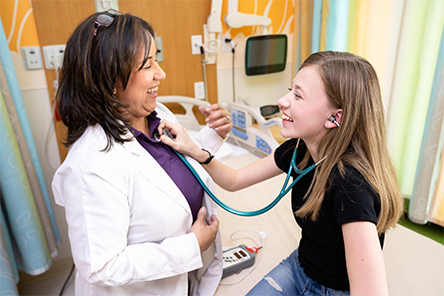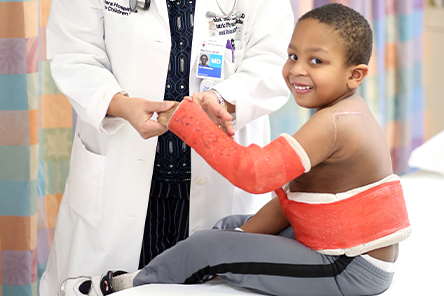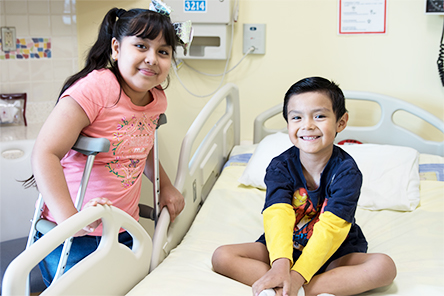Patient Information
Our patients are at the heart of everything we do. Let's help you get started.
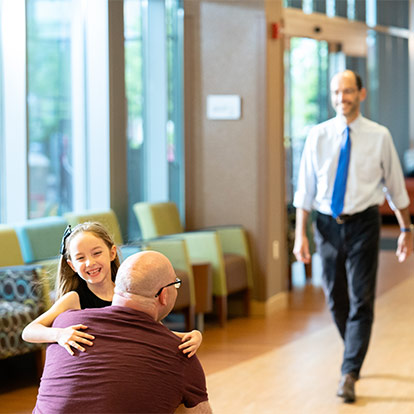
At Shriners Children's, we're committed to delivering innovative, compassionate and individualized care. We provide a full range of services and support to help ensure that our patients reach their goals and discover their full potential.
Our highly specialized team of medical professionals will work with you to develop a care plan unique to your child's needs. Here, you'll find the information and direction you need to get started.
Patient Resources
Explore By Topic
Existing Patients
Information for patients and families receiving care at Shriners Children's
About your Visit
Prepare your child for appointments and overnight stays and learn about our policies, including visiting and safety
Your Visit
Scheduling your Appointment
Learn more about becoming a patient and how to request your child's first appointment with us
Appointments & Admissions
Find a Location
Explore which of our facilities provide treatment for your child's condition or locate a Shriners Children's near you
Shriners Locations
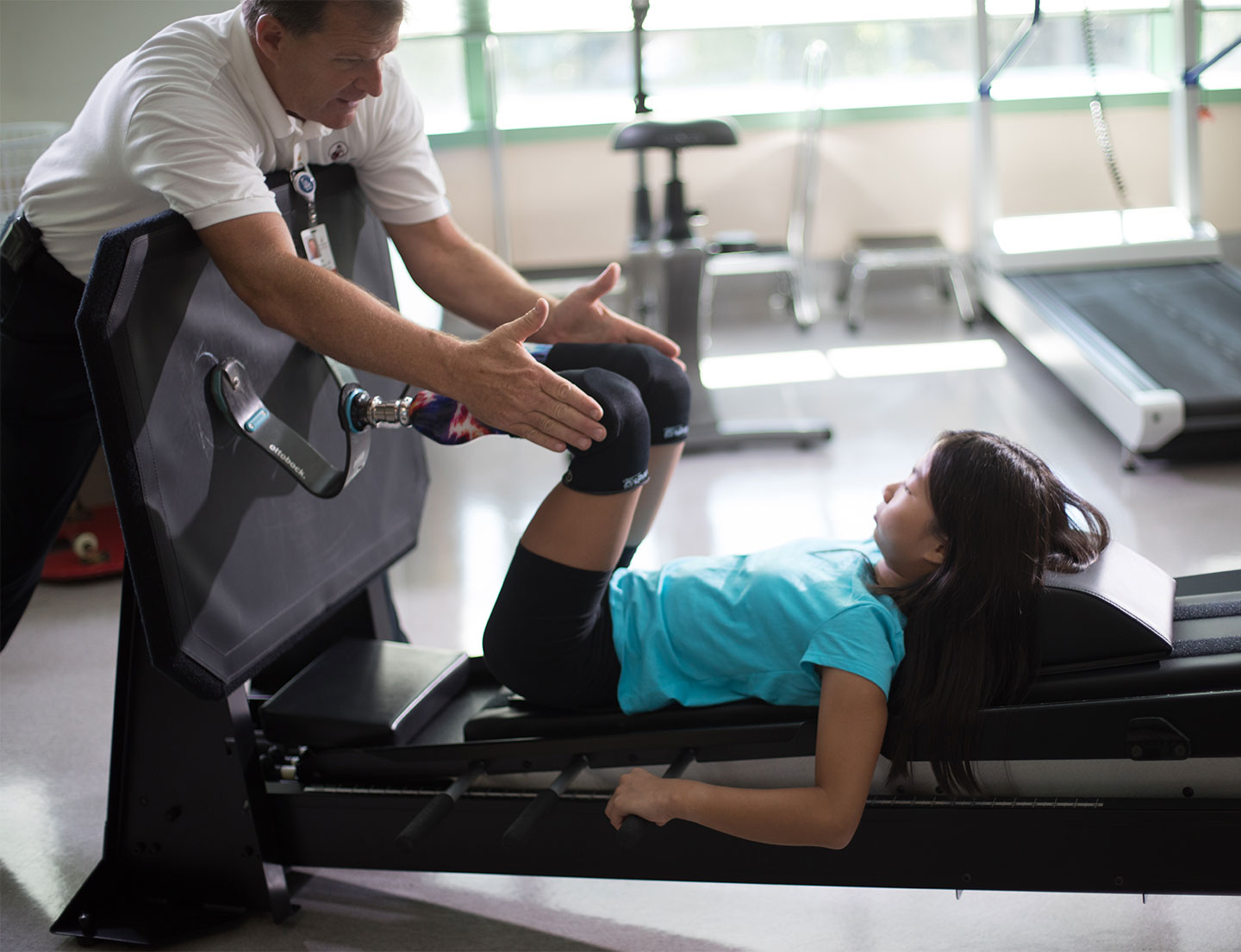
A Path to Precise, Personalized Care
Nothing is more important to you, and us, than your child's health. Imagine being able to better understand their medical condition and treat it accordingly to reduce their need for extended medical care. Through our world-class team of specialists and research we provide vital pioneering treatment from birth to age 18.
Next Steps
Request an Appointment
Families and caregivers seeking treatment should start by contacting us for an appointment.
Log in to the Patient Portal
Parents and guardians of existing patients can email, request records, schedule appointments and more.
Read Patient Stories
Learn about what it's like to be a Shriners Children's patient from children who have experienced it firsthand.

